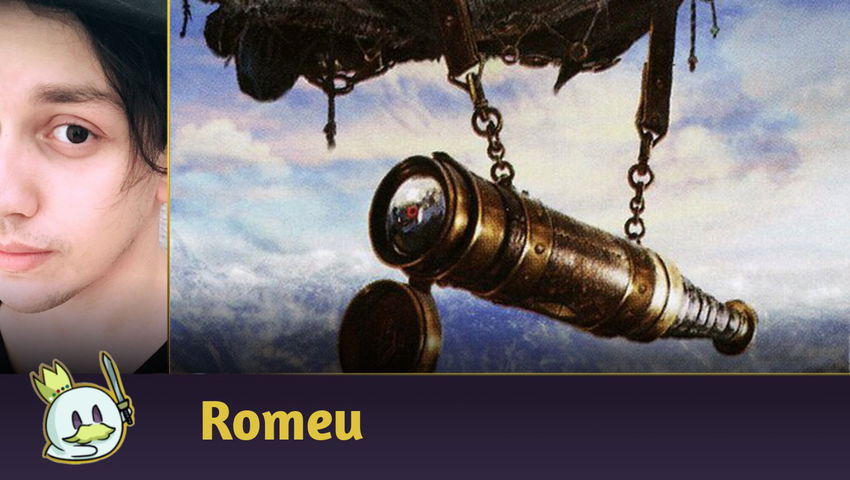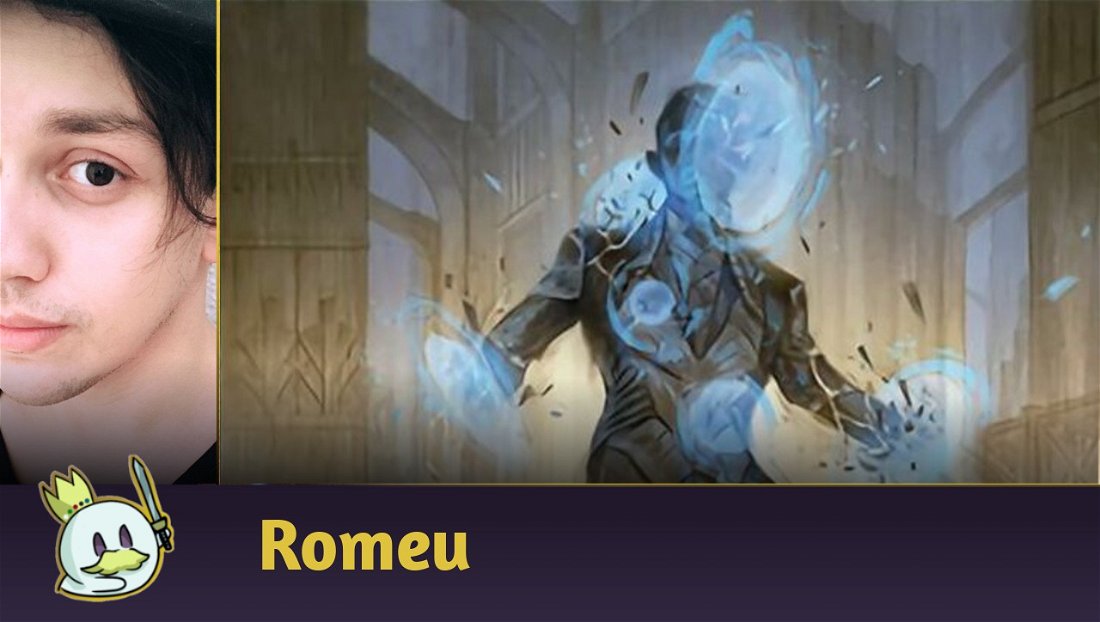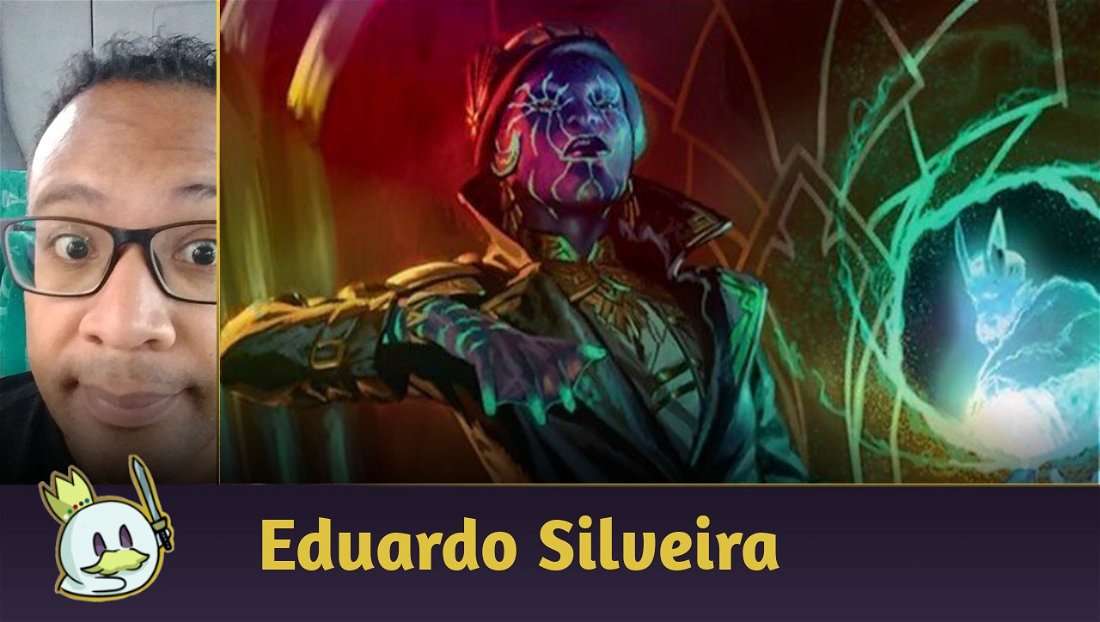A lot has been happening in the world of Magic: The Gathering simultaneously: tabletop and digital competitive system announcements, Streets of New Capenna prerelease this weekend, Commander Legends leaks happening on TikTok, major price increase on Pioneer staples, and so on.
So, it won't come as a surprise if you didn't happen to read yesterday that Wizards announced a new competitive format for Magic Arena called Explorer.
In case you don't know what I'm talking about and how it can affect the digital platform promoted by the company, I'm here to explain how the format works, where it came from and what we can expect in the future for Magic Arena as a whole.
What is the Explorer format?
First, we need to understand what the purpose of this new format is, and it is actually simple to explain: Explorer will be a format which will eventually become Pioneer in Magic Arena.
When initially planned, Historic would be the eternal format that would encompass Standard sets that rotated on the digital platform. However, over the years, numerous products were added to Magic Arena, such as JumpStart, Historic Horizons, the various Historic Anthology bundles, and the inclusion of Strixhaven's Mystical Archives, which made Historic something entirely different from what was expected of it, and the inclusion of exclusively digital cards and the rebalancing policy made Historic an exclusive element of Magic Arena, distinct from the tabletop.
This distinction between digital and tabletop products left a gap in Magic Arena for an eternal competitive format that was true to tabletop. Just as Standard is faithful to what we see in local stores or tournaments, there needed to be a digital format that could be faithful to what we see on the tables in stores and arouse the players' interest, and the ideal format would be Pioneer.
However, there are several cards in Pioneer that aren't present on Arena. Therefore, Wizards decided to create a transitional format, which will eventually become Pioneer within Magic Arena as important cards are added by supplemental products, this format is Explorer, which will be available in Best of 1 and Best of 3 from the release of Streets of New Capenna, but you can start building decks now.
What is legal in Explorer?
In short, everything legal in Pioneer is legal in Explorer, except for cards that haven't been added yet, and Pioneer's banlist is the same for the new format.
As there are cards that will never be placed on the digital platform because they are banned on Pioneer, the cards existing in Magic Arena and which are banned in Explorer are:

While Explorer is undergoing this transition, Wizards intends, if necessary, to manage a separate banlist for the new format until it effectively becomes Pioneer.
There will be no rebalances or suspensions in Explorer. If it's decided that a card needs to go for the sake of the Metagame's health, it will be banned. For now, the company doesn't intend to ban anything, and if that happens, this card (if it's legal on Pioneer) will be playable again when Explorer becomes Pioneer.
Why not just add Pioneer to Magic Arena?
Well, there is no clear explanation as to why exactly they chose to create a format that will eventually become Pioneer, but this is not the first time it happened: on Magic Online, the “Classic” format was made to create an eternal format that, gradually, increased with Masters Editions until it became Vintage.
My three personal assumptions about creating this format are:
1) There wasn't a clear plan for how they intend to add numerous cards at once without getting a storm of negative feedback.
2) Technology, but I find it kind of difficult as Wizards had no problem adding 700+ JumpStart cards to Magic Arena at once, which leads me to the optimistic assumption...
3) Wizards recognizes that Magic Arena's poor economy is a problem for entering eternal formats (especially if you're new to the platform or don't grind and purchase products often), and intends to establish long-term planning with products like the already mentioned Historic Horizons 6 to add more cards to Explorer without having to make the usual player's entry even more expensive, as in these bundles you automatically receive 4 copies of each card in it at no additional cost.
Particularly, using Historic Horizons bundles for this purpose seems like a great idea to alleviate the tension surrounding Arena's awfully bad economy.
How hard is it to build your Explorer collection?
It depends on how much you've invested in manabase and staples from Standard and Historic in the last few years.
I've been playing Magic Arena since the beginning of the pandemic, and until Strixhaven, I've always invested some money in gems to purchase packs (you can get the whole set by playing and doing relatively well in several draft matchups, but I don't particularly have the time and nor the patience required for this despite considering draft and sealed some of the most fun formats to play on tabletop), I stopped playing on the platform after Adventures in the Forgotten Realms came out and just logged back into my account last week since, with college and work, my best option to enjoy Magic is through my smartphone.
Looking at what really matters in an eternal format, manabase, and looking at the Pioneer examples most played lands are a mix of Shocklands, Pathways, Fast Lands, Triomes, and Slow Lands, with occasional Check Lands popping up in some lists, and if you've played Standard for the past couple of years, you've probably composed a manabase collection robust enough for Explorer.
As for the other cards, it depends on what you want to build, but Magic itself isn't exactly built in a way that rewards the Wildcard system much because, unlike other digital card games, rare cards are infinitely more important than many commons and uncommons on most deck, making them virtually more expensive than in other games.
So, for those who have been playing Magic Arena for a while (even if only Standard), it may not be that difficult to start their Explore collection, but for the player who has recently joined or who will start playing Magic Arena in the near future, the entry barrier is significantly high, perhaps as high as Historic.
My general recommendation is, if you've just started playing and don't have a lot of rare and mythic wildcards available, focus on Standard or Draft to improve your collection, and then think about whether you want to play Explorer. I'll be searching for alternatives that are cheap on rare and mythic wildcards, so you too can enjoy this new format when it launches, I promise.
Which important Pioneer cards are not in Explorer yet?
Some essential parts among the best Pioneer decks are currently not available in Explorer and essentially make them much worse versions compared to archetypes that are complete, or have easily replaceable parts. For example:

Monastery Swiftspear and Eidolon of the Great Revel are essential pieces of Pioneer's Mono Red Burn that don't exist in Magic Arena, such as the Delve spells, Treasure Cruise and Temporal Trespass, are essential to Izzet Phoenix and are also not available in the format yet.
Decks like Lotus Combo and Jeskai Ascendancy are completely invalidated by the absence of centerpieces of their strategies, like Thespian's Stage and Jeskai Ascendancy itself.
Other relevant exclusions, which can be replaced with some ease while not available, include relevant Midrange pieces like Kalitas, Traitor of Ghet and Dreadbore, or Azorius Control sweepers like Supreme Verdict, or some mana dorks for decks like Naya Winota or Gruul Aggro.
Five Explorer Decklists
Finally, I present five decklists coming directly from Pioneer that can be used in Explorer without much difficulty or with functional adaptations. I won't be adding Sideboards because we still don't know what the competitive Metagame of the new format will look like.
I'm sure Naya Winota will be the absolute best deck in the format when Explorer comes out, simply because all the important pieces on the list are already present in Arena and its worst matchups, Combo decks, are missing so far, and it won't surprise me if Winota, Joiner of Forces eventually gets banned.
Naya Winota is an Aggro-Combo similar to what the Goblins seek to accomplish with Muxus, Goblin Grandee, where you accelerate your plays to perform a massive Winota, Joiner of Forces trigger in the first turns, establishing an unbeatable board position with creatures like Tovolar's Huntmaster and Blade Historian, while also managing to behave like a flexible midrange that generates a lot of value with its 2-for-1 effects like Esika’s Chariot and Brutal Cathar.
To replace what wasn't available, I added four copies of Gilded Goose in place of Elvish Mystic, and four copies of Paradise Druid in place of Voice of Resurgence, as I think we'll have a huge amount of Winota mirrors in the first few weeks, and having the consistency of casting Winota, Joiner of Forces, Esika's Chariot and Tovolar's Huntmaster before your opponent will do a huge difference in a mirror match.
But these slots can become anything as the Metagame is shaped, and other options worth considering include Elite Spellbinder, Thalia, Guardian of Thraben, Skyclave Apparition, among many other options.
Mardu Greasefang is another Combo/Midrange hybrid deck that seeks to utilize the graveyard as a key element to reanimate or cast Greasefang, Okiba Boss, which will return Parhelion II to the battlefield with haste that, when attacking, will create two 4/4 Angel tokens, dealing a total of 13 damage to the opponent and keeping 8 power on the board, essentially being a combo-kill split over two turns.
To complement this strategy, the list also has creatures that have good bodies and ETB effects related to Blood tokens, which can be used to discard combo pieces, in addition to Kroxa, Titan of Death's Hunger as a complementary threat and Fable of the Mirror-Breaker as a value engine.
Another archetype that can be built entirely in Explorer is Rakdos Sacrifice.
In this list, which is relatively cheap (with 23 rare and 0 mythics in this version, although it can include some The Meathook Massacre copies), the strategy is to use the interaction between sacrifice effects, such as Witch's Oven + Cauldron Familiar, or Oni-Cult Anvil and any artifact, to add value for a low mana value, slowly killing the opponent with small micro-interactions and the accumulated damage that one or more Mayhem Devil on the battlefield can potentiate.
This is not a simple deck to pilot and requires good knowledge of the right timing for each interaction and plenty of time and speed with the mouse or fingers on the screen to not lose to timeout, but it is also extremely fun to pilot.
Although Control is a strategy that normally needs to adapt to the Metagame before it becomes established, I believe that the foundation of Pioneer's Azorius Control will also be mostly functional in Explorer.
This list follows the classic plan of responding to the opponent's plays with counterspells and removals, and then starting to accumulate card advantage, especially with Planeswalkers, establishing a position in the game where your opponent runs out of resources, while you will always have an answer to any threat they play.
The deck has different ways to end the game, either through activating Hall of Storm Giants, or with tokens from Shark Typhoon and The Wandering Emperor, or through Teferi, Hero of Dominaria.
Finally, we have the classic disruptive Aggro that has been present in Pioneer since its inception, Mono-Black Aggro.
In this list, you mix the clock of low-cost creatures along with ways to disrupt the opponent's game plan through discards like Thoughtseize or removals like Fatal Push and Murderous Rider and, if the game goes on, cards like Castle Locthwain and Rankle, Master of Pranks help you accumulate more resources.
Unfortunately, we still don't have an essential piece of the list, Mutavault, and while we can count on options like Faceless Haven and Hive of the Eye Tyrant, none of these cards really replace one of the best manlands ever released in the game's history. The absence of Urborg, Tomb of Yawgmoth also greatly compromises the use of colorless lands, so I chose to maximize the number of Hive of the Eye Tyrant and Castle Locthwain.
A list like Mono-Black Aggro seems ideal for beginner players who want to win fast or lose quickly, but unfortunately, it requires a high number of rare wildcards and this will limit its use among those who are unfamiliar with the format.
Conclusion
That was my presentation of Magic Arena's new format, Explorer, and what its benefits are for the digital platform and how the format will eventually become Pioneer.
In a personal conclusion, I consider it beneficial to have a new competitive format in Arena that doesn't require the player to have confusing knowledge of legality, with the introduction of hundreds of cards through complementary products.
However, Arena's economy is still awful, and significant improvements need to be made so that the usual Standard player who started for a while becomes interested in playing Explorer, or that a player who doesn't dedicate as much time to draft and sealed grind might feel interested in investing resources in the game to build more decks. In the end, the biggest enemy of the Magic Arena player today remains the flawed economy that keeps many away from the opportunity to play a format other than Standard.
That said, I'm excited to see one of my favorite formats move to a platform where I can play from anywhere, and I plan to cover more of its Metagame as it develops.
Thanks for reading!













— Comentarios 0
, Reacciones 1
Se el primero en comentar